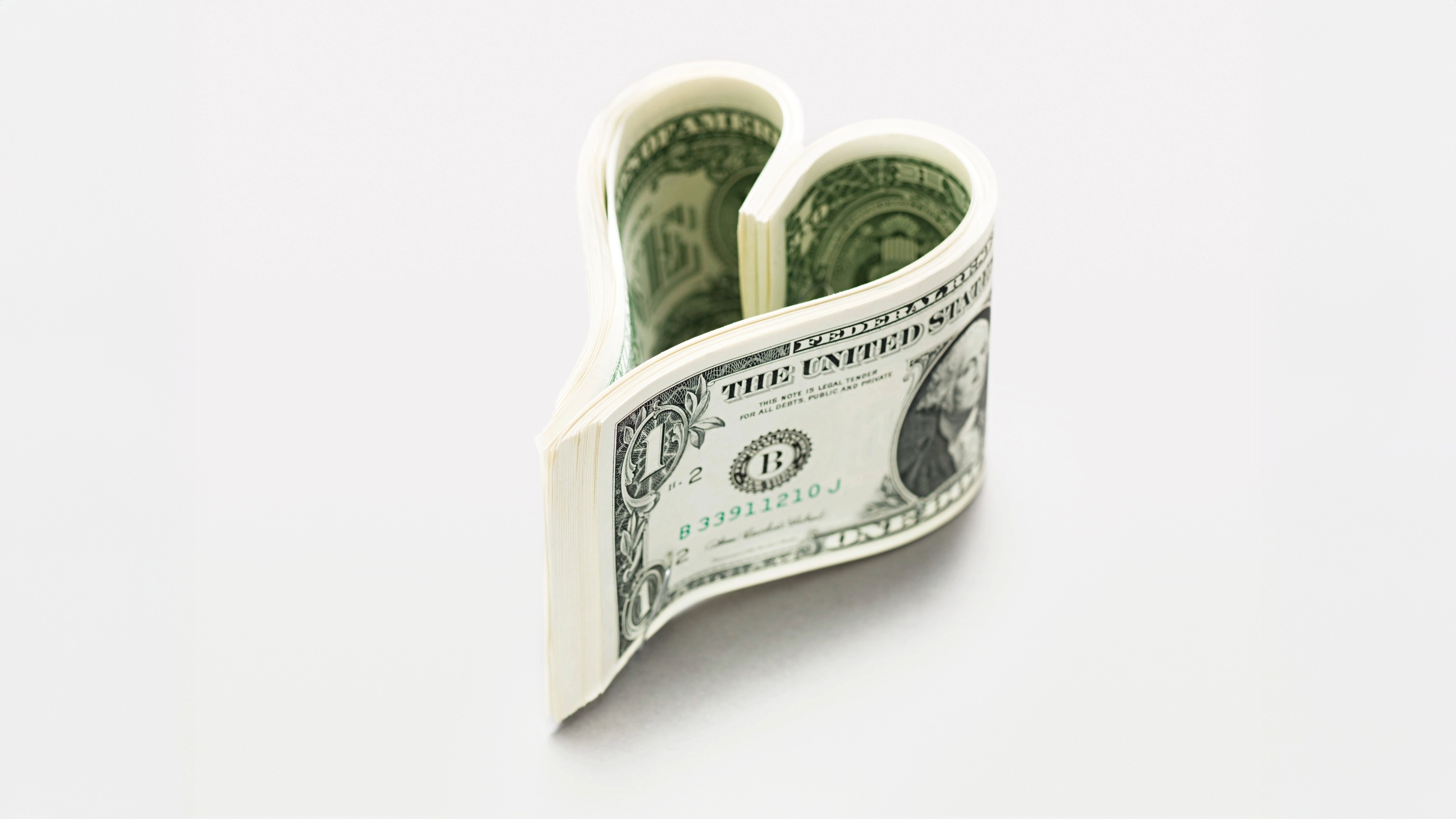How to Embrace Your Financial Wellness This Fall
Economic uncertainty can take a toll on your mental health if you don’t stay on top of your financial wellness. Here’s where to start.


Profit and prosper with the best of Kiplinger's advice on investing, taxes, retirement, personal finance and much more. Delivered daily. Enter your email in the box and click Sign Me Up.
You are now subscribed
Your newsletter sign-up was successful
Want to add more newsletters?

Delivered daily
Kiplinger Today
Profit and prosper with the best of Kiplinger's advice on investing, taxes, retirement, personal finance and much more delivered daily. Smart money moves start here.

Sent five days a week
Kiplinger A Step Ahead
Get practical help to make better financial decisions in your everyday life, from spending to savings on top deals.

Delivered daily
Kiplinger Closing Bell
Get today's biggest financial and investing headlines delivered to your inbox every day the U.S. stock market is open.

Sent twice a week
Kiplinger Adviser Intel
Financial pros across the country share best practices and fresh tactics to preserve and grow your wealth.

Delivered weekly
Kiplinger Tax Tips
Trim your federal and state tax bills with practical tax-planning and tax-cutting strategies.

Sent twice a week
Kiplinger Retirement Tips
Your twice-a-week guide to planning and enjoying a financially secure and richly rewarding retirement

Sent bimonthly.
Kiplinger Adviser Angle
Insights for advisers, wealth managers and other financial professionals.

Sent twice a week
Kiplinger Investing Weekly
Your twice-a-week roundup of promising stocks, funds, companies and industries you should consider, ones you should avoid, and why.

Sent weekly for six weeks
Kiplinger Invest for Retirement
Your step-by-step six-part series on how to invest for retirement, from devising a successful strategy to exactly which investments to choose.
Too many people neglect financial wellness as part of their holistic health and well-being agenda — even though the evidence shows that financial stress contributes to a decline in both mental and physical health. As we head toward fall, now is the perfect time to take a step back and assess our financial health and well-being.
Real-world factors like rising inflation and sky-high interest rates, paired with the public’s general anxiety surrounding economic uncertainty, are causing Americans to experience financial stress at overwhelming levels. In fact, the percentage of Americans who said they experience unmanageable levels of financial stress climbed by 34% in 2022, according to workplace financial wellness provider Financial Finesse.
Recent surveys have found nearly half (48%) of employees point to financial concerns as the cause of poor mental health and that financial stress negatively impacted their sleep, physical health and relationships at home. It’s no wonder that last year the percentage of Americans who would describe their mental and/or physical health as good or excellent fell to an all-time low.
From just $107.88 $24.99 for Kiplinger Personal Finance
Become a smarter, better informed investor. Subscribe from just $107.88 $24.99, plus get up to 4 Special Issues

Sign up for Kiplinger’s Free Newsletters
Profit and prosper with the best of expert advice on investing, taxes, retirement, personal finance and more - straight to your e-mail.
Profit and prosper with the best of expert advice - straight to your e-mail.
However, the cards are not stacked against you. By prioritizing financial wellness the same way you would prioritize other areas of wellness, it is possible to reverse the mental, physical and financial costs of financial stress.
How to foster financial wellness
First, let’s identify what “financial wellness” even means. Financial Finesse, which coined the term in 1999, defines it as a state of financial well-being where a person maintains a manageable level of financial stress, a lifestyle below their means, an emergency savings fund, no high-interest debt, a sufficient insurance and estate plan and an ongoing plan to reach their future financial goals.
That sounds like a lot, but it’s really about getting your financial foundation in place. Here are three important places to start:
- Revise your money script. This subconscious set of attitudes, beliefs and values influences virtually all of our financial decisions, oftentimes without us even realizing it. By assessing how your family, culture and overall experiences have shaped your ideas about money, you’ll be able to identify key lessons — both positive and negative — and reevaluate how you think about and view money.
- Establish your financial identity. There are several types of financial identities, ranging from the investor to the giver, the planner to the bargain hunter. Adopting an identity according to your values will reduce the emotional burden of money and help orient your financial decisions.
- Figure out what drives your personal success. Researchers call these “bright spots,” and they can be harnessed toward accelerating your financial progress. Applying lessons learned from your greatest successes to your financial goals will keep you motivated to stick to your plan, find reward and satisfaction, and take you further in your financial wellness practice.
Immediate steps to get on track
While you work on building your financial foundation, there are a number of tactical steps you can take right away.
Set a budget that you will stick to, while also reviewing and revising it periodically to align with any lifestyle changes. Budgeting can sound overwhelming, but it is the first step toward reducing financial stress.
As part of that budget, make sure to create an emergency savings fund. Typically, your emergency fund should have three to six months of living expenses to keep you going in case of an unexpected financial challenge. If you don’t have the extra cash lying around, start slowly to build up this nest egg.
Staying organized throughout this whole process will also alleviate financial strain. Automate your finances where possible to make reviewing your investments and assets easier than ever before. You can make use of countless websites and apps to keep a handle on where you stand financially.
Lastly, be open to asking for help throughout this process. Seeking the advice of a professional to guide you is not only reasonable, but it may even be included as part of your employer’s benefits package. Enlisting the support of an unbiased financial coach will make financial wellness even more attainable.
The stats show that wellness is something we can all work on this fall. Take a few minutes to assess your financial foundation and see which areas need some extra TLC. Growing your financial wellness will continue to pay dividends, far beyond this fall.
related content
- Financial Wellness Is Self-Care: Three Steps to Help Improve Yours
- Your Money Mindset Forms by 7: And the Gift Keeps on Giving
- Common Financial Weaknesses and How to Overcome Them
- Six Ways to Improve Your Financial Wellness
- Improving Your Financial Health: A 10-Step Workout Plan
Profit and prosper with the best of Kiplinger's advice on investing, taxes, retirement, personal finance and much more. Delivered daily. Enter your email in the box and click Sign Me Up.

Greg Ward, CFP®, is the Director of the Financial Wellness Think Tank at Financial Finesse, where he oversees industry-leading research on financial wellness best practices and trends, looking at both the workplace environment and employee sentiment. Recent examples include studies on the shifting financial priorities of Millennials and Gen Z and longstanding racial financial wellness and wealth gaps.
-
 You Could Be Overpaying for Internet. Here’s How to Choose the Right Type
You Could Be Overpaying for Internet. Here’s How to Choose the Right TypeFiber, cable, 5G wireless and satellite internet all offer different speeds, reliability and price points. Understanding the differences could help you lower your monthly bill or improve performance.
-
 Chapter X: Steering Men Through Rocky Transitions to Retirement
Chapter X: Steering Men Through Rocky Transitions to RetirementDon’t just retire — evolve. Chapter X is a strategy for a high-impact second act, designed for men, by a man.
-
 My First $1 Million: Retired From Real Estate, 75
My First $1 Million: Retired From Real Estate, 75Ever wonder how someone who's made a million dollars or more did it? Kiplinger's My First $1 Million series uncovers the answers.
-
 If the Markets Cause You Restless Nights, You Might Want to Consider This Safety Net
If the Markets Cause You Restless Nights, You Might Want to Consider This Safety NetIf you find market volatility too stressful, buying annuities that provide stability and protect your principal could help you rest easier. Here's what to consider.
-
 When Markets Are Jumpy: A Financial Planner Explains How to Stay Grounded
When Markets Are Jumpy: A Financial Planner Explains How to Stay GroundedMarket turbulence makes even the most experienced investors nervous. Here are some tips for ignoring the panic and trusting your plan when things get volatile.
-
 To Love, Honor and Make Financial Decisions as Equal Partners
To Love, Honor and Make Financial Decisions as Equal PartnersEnsuring both partners are engaged in financial decisions isn't just about fairness — it's a risk-management strategy that protects against costly crises.
-
 4 Pro Tips for Successfully Scaling the Medicare Mountain
4 Pro Tips for Successfully Scaling the Medicare MountainAttempting to conquer Medicare without a plan is risky. The safest route requires a thorough understanding of your options and never leaves decisions to chance.
-
 For More Flexible Giving, Consider Combining a Charitable Remainder Trust With a Donor-Advised Fund
For More Flexible Giving, Consider Combining a Charitable Remainder Trust With a Donor-Advised FundIf a charitable remainder trust puts too many constraints on your family's charitable giving, consider combining it with a donor-advised fund for more control.
-
 The Illinois 'Cliff Tax': A Single Dollar Could Cost Families Hundreds of Thousands
The Illinois 'Cliff Tax': A Single Dollar Could Cost Families Hundreds of ThousandsIllinois' estate tax "threshold" (rather than "exemption") can surprise families, but proactive planning can help preserve more for heirs and charitable causes.
-
 These Thoughtful Retirement Planning Steps Help Protect the Life You Want in Retirement
These Thoughtful Retirement Planning Steps Help Protect the Life You Want in RetirementThis kind of planning focuses on the intentional design of your estate, philanthropy and long-term care protection.
-
 Fixed Indexed Annuities and Bonds: The Perfect Match as Interest Rates Inch Lower?
Fixed Indexed Annuities and Bonds: The Perfect Match as Interest Rates Inch Lower?The prospect of more interest rate cuts has investors wondering how to enhance the bond portion of their portfolio. A fixed indexed annuity could be the answer.